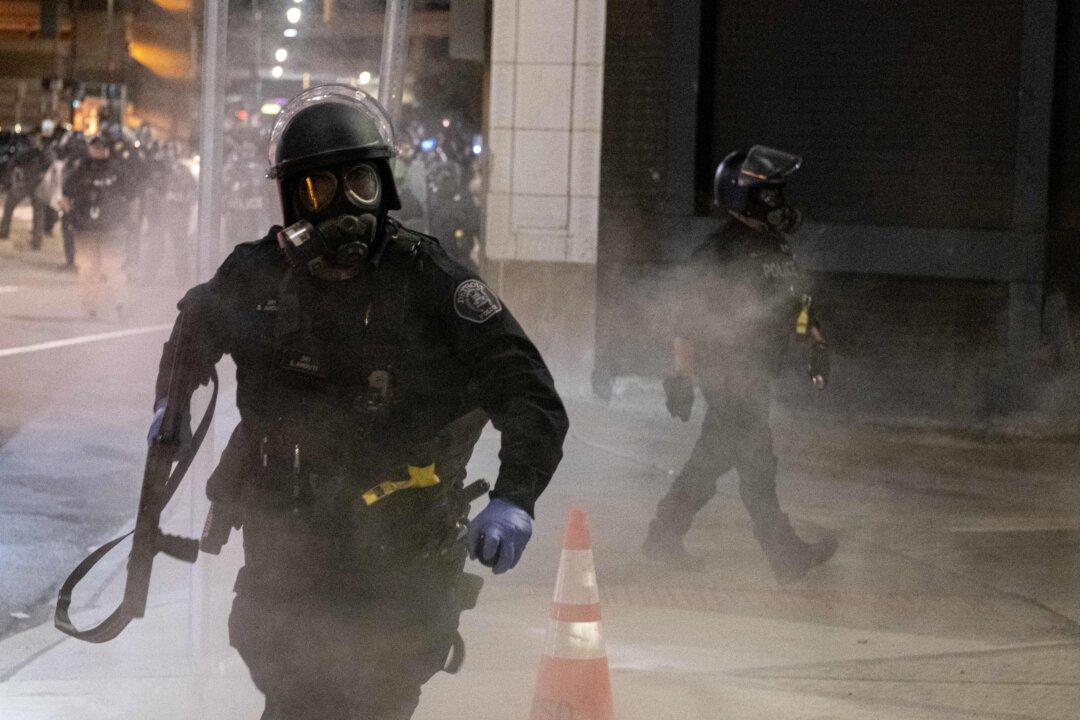A federal judge has issued a restraining order, temporarily barring Detroit police from using a range of response tactics—including tear gas, rubber bullets, and batons—against “peaceful protesters” after a group accused officers of excessive force, with the city’s police chief dismissing the decision, saying no such methods have been used on people protesting peacefully.
U.S. District Court Judge Laurie Michelson partially granted a temporary restraining order filed on Aug. 31 by Detroit Will Breathe against the city of Detroit (pdf), accusing police of using brutal tactics to deter protesters from practicing their free speech rights.





